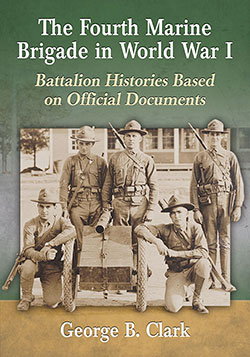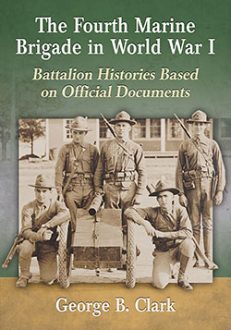The Fourth Marine Brigade in World War I
Battalion Histories Based on Official Documents
$39.95
In stock
About the Book
During World War I, the American Expeditionary Force Second Division saw more action and captured more ground and enemy combatants than any other, including the vaunted First Division.
The 4th Marine Brigade, especially, earned a reputation as a steadfast unit of superb fighting men. Drawing on battle reports and other official documents, this volume follows those Marines through their service in France in 1917 and 1918, their postwar occupation of Germany, and their arrival in New York City in August 1919.
Chapters covering each of the brigade’s seven battalions recount their role in some of the most intense battles of the war, including Belleau Wood, Soissons, St. Mihiel, Blanc Mont and the Meuse River.
Descriptions of the Armistice, homecoming parades, and the brigade’s inactivation at Quantico complete this comprehensive chronicle of one of the American military’s most distinguished units.
About the Author(s)
Bibliographic Details
George B. Clark
Format: softcover (7 x 10)
Pages: 296
Bibliographic Info: 37 photos, 8 maps, notes, bibliography, index
Copyright Date: 2015
pISBN: 978-0-7864-9699-0
eISBN: 978-1-4766-1813-5
Imprint: McFarland
Table of Contents
Table of Contents
Preface 1
Introduction 3
Abbreviations 4
1 Fourth Brigade of Marines 5
2 First Battalion, Fifth Marines, 1917–1919 26
3 Second Battalion, Fifth Marines, 1917–1919 67
4 Third Battalion, Fifth Marines, 1917–1919 106
5 First Battalion, Sixth Marines, 1917–1919 149
6 Second Battalion, Sixth Marines, 1917–1919 185
7 Third Battalion, Sixth Marines, 1917–1919 214
8 Sixth Machine Gun Battalion 251
Chapter Notes 279
Bibliography 281
Index 285
Book Reviews & Awards
“clearly a labor of love, and it is one of the best options for understanding the daily experiences of World War I Marines”—H-Net Reviews.





